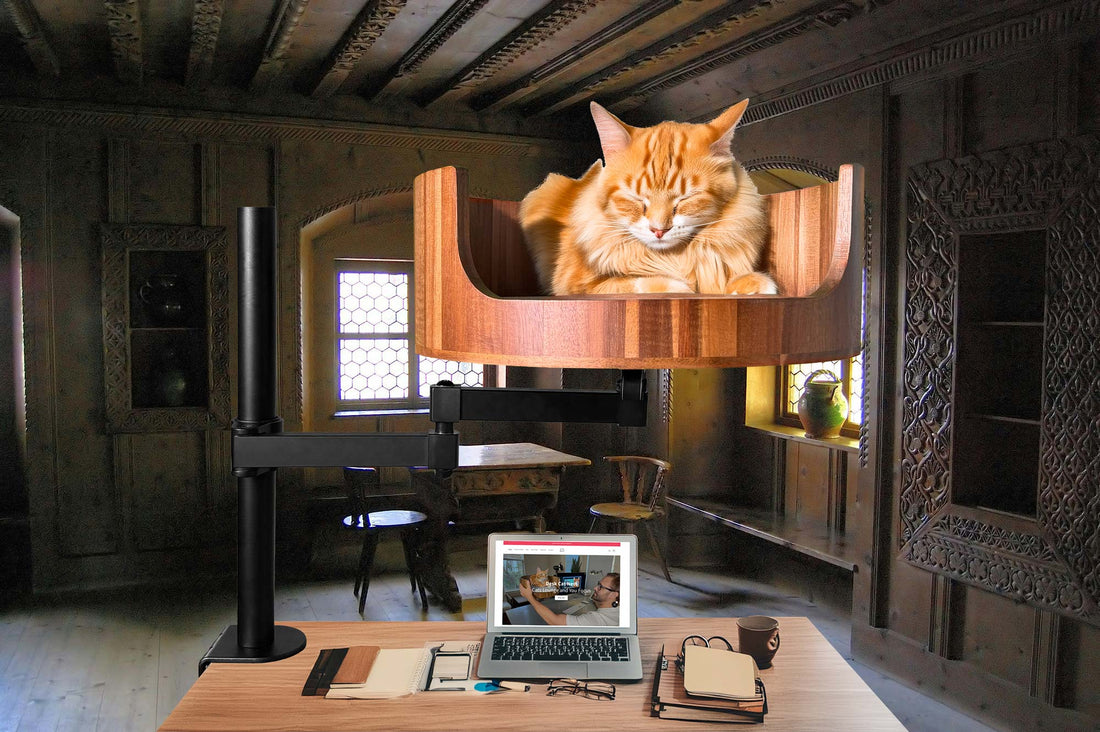
Gas in Cats: Understanding Causes and Solutions
Share
Gas in cats can be a smelly and unpleasant issue for both feline companions and their owners. While occasional gas is normal for cats, excessive flatulence can be a sign of a more serious underlying health issue. Understanding the causes of gas in cats is crucial for providing proper care and finding solutions to alleviate discomfort. In this article, we will explore the common reasons why cats may experience gas, including diet, food allergies, gastrointestinal issues, and stress. We will also discuss potential solutions and remedies to help manage and reduce gas in cats, such as dietary changes, probiotics, and veterinary care. By gaining a better understanding of gas in cats, pet owners can ensure their furry friends are happy, healthy, and free from uncomfortable symptoms.
1. Gas in cats can be caused by dietary issues, gastrointestinal problems, allergies, and stress.
2. Understanding the potential causes of gas in cats is essential for effective treatment and prevention.
3. Solutions for reducing gas in cats include dietary adjustments, probiotics, and regular exercise.
4. Consulting with a veterinarian is crucial to determine the underlying cause of gas in cats and develop a tailored treatment plan.
5. By addressing the root cause of gas in cats, pet owners can improve their feline companions' overall health and comfort.
Causes of Excessive Gas in Cats
Excessive gas in cats can be caused by a variety of factors, including diet, underlying health conditions, and even stress. One common cause of gas in cats is dietary indiscretion, where a cat eats something that they shouldn't, such as table scraps or spoiled food. Cats with food allergies or sensitivities may also experience gas as a result of their bodies reacting to certain ingredients in their diet. Additionally, cats with gastrointestinal issues, such as inflammatory bowel disease or parasites, may have trouble digesting their food properly, leading to excess gas. Stress can also play a role in gas production in cats, as it can affect their digestive system and lead to gastrointestinal upset.
Solutions for Reducing Gas in Cats
If your cat is experiencing excessive gas, there are several steps you can take to help reduce their symptoms. One of the most important things you can do is to ensure that your cat is on a high-quality, balanced diet that is appropriate for their age and lifestyle. This may involve switching to a limited-ingredient diet or a prescription diet recommended by your veterinarian. You can also try feeding smaller, more frequent meals to help aid digestion and prevent gas buildup. Additionally, it may be helpful to incorporate probiotics or digestive enzymes into your cat's diet to promote a healthy gut flora and improve digestion. Regular exercise and stress management techniques, such as environmental enrichment and interactive play, can also help reduce gastrointestinal upset in cats.
Case Study: Managing Gas in a Senior Cat
One example of managing gas in a senior cat involves a 10-year-old domestic shorthair named Whiskers. Whiskers' owner noticed that he was passing gas more frequently and had developed occasional diarrhea. After consulting with their veterinarian, it was determined that Whiskers had a food sensitivity to grains in his diet. The veterinarian recommended switching Whiskers to a grain-free, limited-ingredient diet and adding a probiotic supplement to his meals. Within a few weeks, Whiskers' gas and diarrhea had significantly improved, and he was back to his happy, healthy self. This case study highlights the importance of identifying and addressing the underlying cause of gas in cats to effectively manage their symptoms and improve their overall quality of life.
Frequently Asked Questions
Can the Desk Cat Nest really help with gas in cats?
Yes, the Desk Cat Nest is specifically designed to help alleviate gas in cats by providing a comfortable and enclosed space for your furry friend to relax and digest their food more easily.
What makes the Desk Cat Nest effective for addressing gas in cats?
The cozy and enclosed design of the Desk Cat Nest helps create a calming environment for your cat, reducing stress and promoting healthy digestion, which can help minimize gas issues.
How do I introduce my cat to the Desk Cat Nest?
It's best to place the Desk Cat Nest in a quiet and familiar area where your cat likes to rest. You can also add some of your cat's favorite toys or bedding inside to encourage them to explore and use the nest.
Is the Desk Cat Nest easy to clean?
Yes, the Desk Cat Nest is made with durable and washable materials, making it easy to maintain and keep clean. Simply remove any pet hair or debris regularly and follow the cleaning instructions provided.
Can multiple cats use the Desk Cat Nest at the same time?
While the Desk Cat Nest is designed for one cat, some cats may be comfortable sharing the space with a friend. However, it's important to monitor their behavior to ensure they are both comfortable and not showing any signs of aggression.
In conclusion, the Desk Cat Bed is a valuable choice for cat owners looking to alleviate gas in their feline companions. With its raised design to promote digestion and reduce bloating, as well as its comfortable and cozy cushioning, this cat bed provides a comfortable space for cats to rest and relax, leading to improved digestive health. By investing in a Desk Cat Bed, pet owners can help alleviate gas and discomfort in their cats while providing a luxurious lounging spot for their beloved pets.



















































